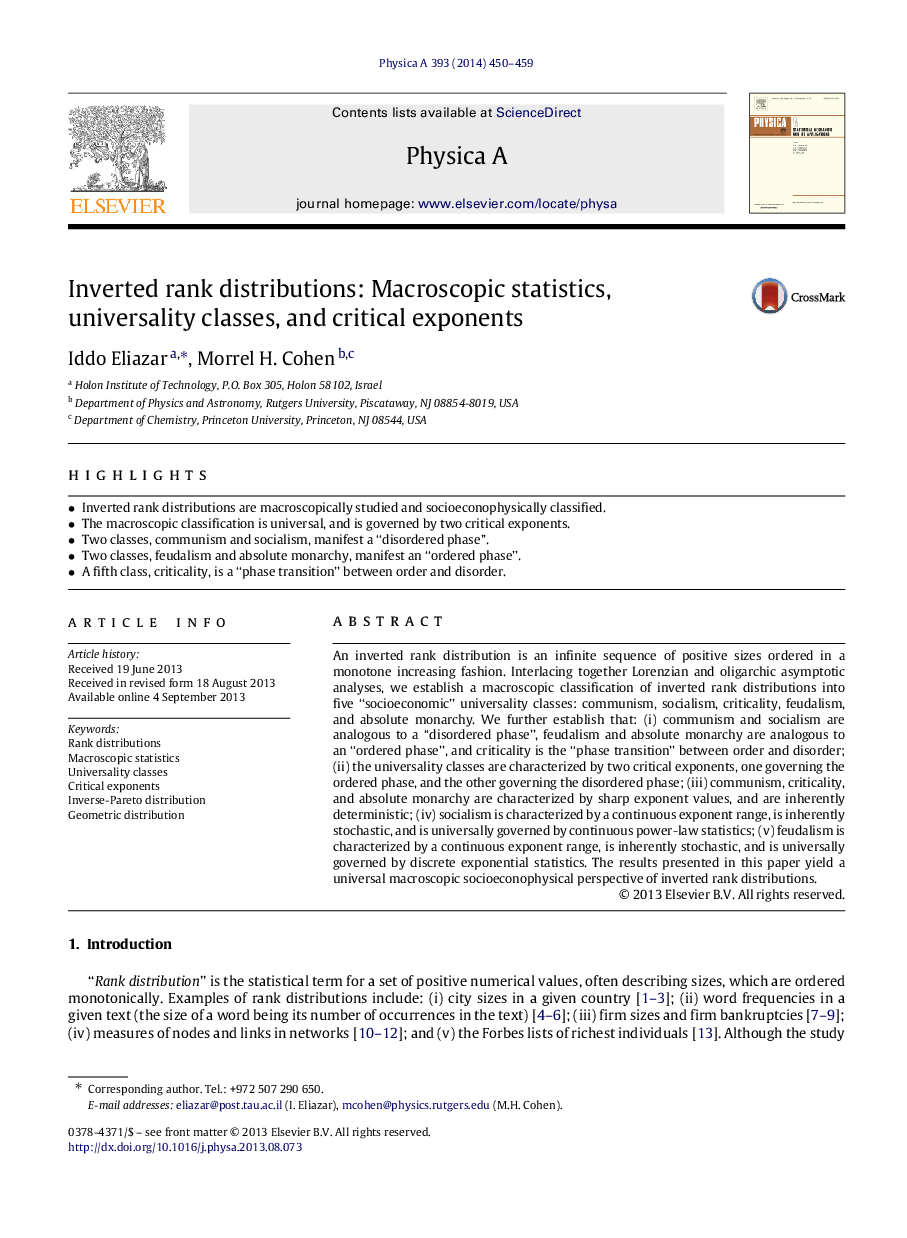| Article ID | Journal | Published Year | Pages | File Type |
|---|---|---|---|---|
| 7382604 | Physica A: Statistical Mechanics and its Applications | 2014 | 10 Pages |
Abstract
An inverted rank distribution is an infinite sequence of positive sizes ordered in a monotone increasing fashion. Interlacing together Lorenzian and oligarchic asymptotic analyses, we establish a macroscopic classification of inverted rank distributions into five “socioeconomic” universality classes: communism, socialism, criticality, feudalism, and absolute monarchy. We further establish that: (i)Â communism and socialism are analogous to a “disordered phase”, feudalism and absolute monarchy are analogous to an “ordered phase”, and criticality is the “phase transition” between order and disorder; (ii)Â the universality classes are characterized by two critical exponents, one governing the ordered phase, and the other governing the disordered phase; (iii)Â communism, criticality, and absolute monarchy are characterized by sharp exponent values, and are inherently deterministic; (iv)Â socialism is characterized by a continuous exponent range, is inherently stochastic, and is universally governed by continuous power-law statistics; (v)Â feudalism is characterized by a continuous exponent range, is inherently stochastic, and is universally governed by discrete exponential statistics. The results presented in this paper yield a universal macroscopic socioeconophysical perspective of inverted rank distributions.
Related Topics
Physical Sciences and Engineering
Mathematics
Mathematical Physics
Authors
Iddo Eliazar, Morrel H. Cohen,
